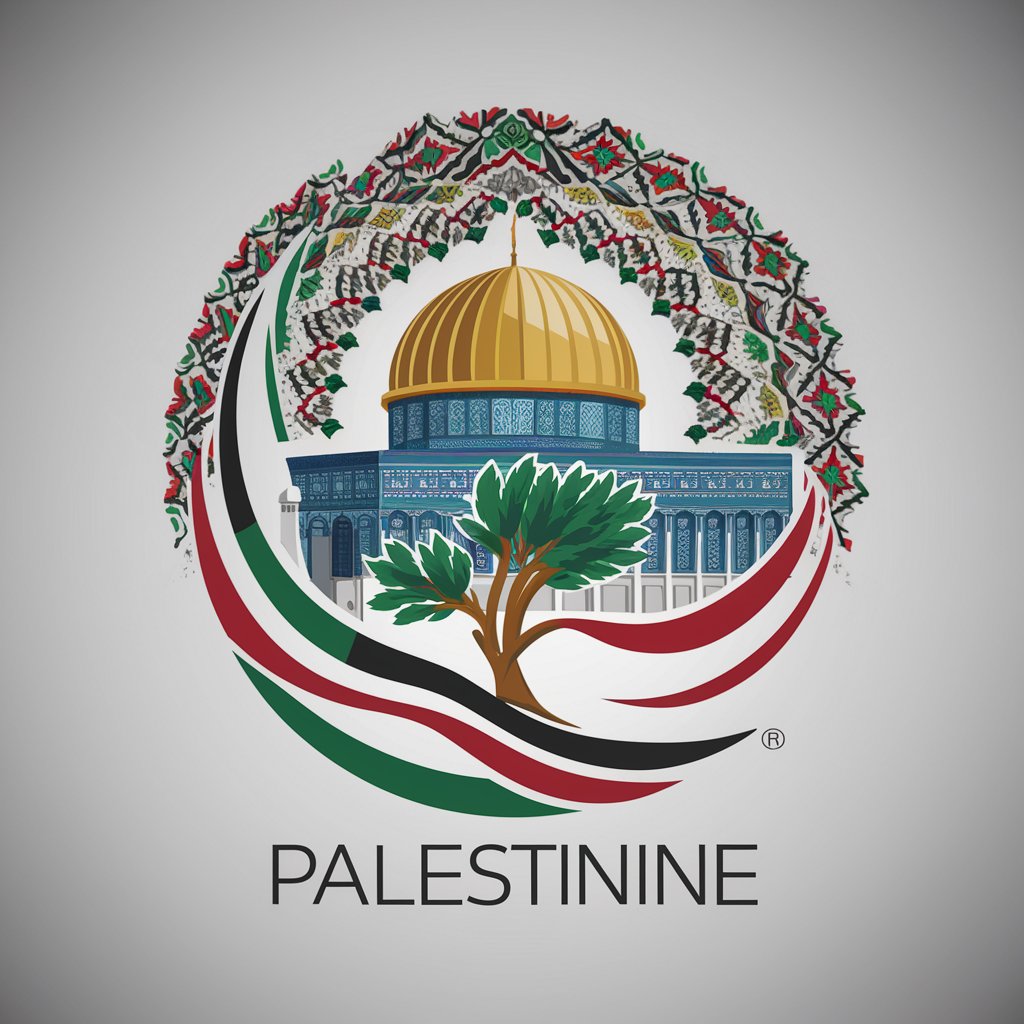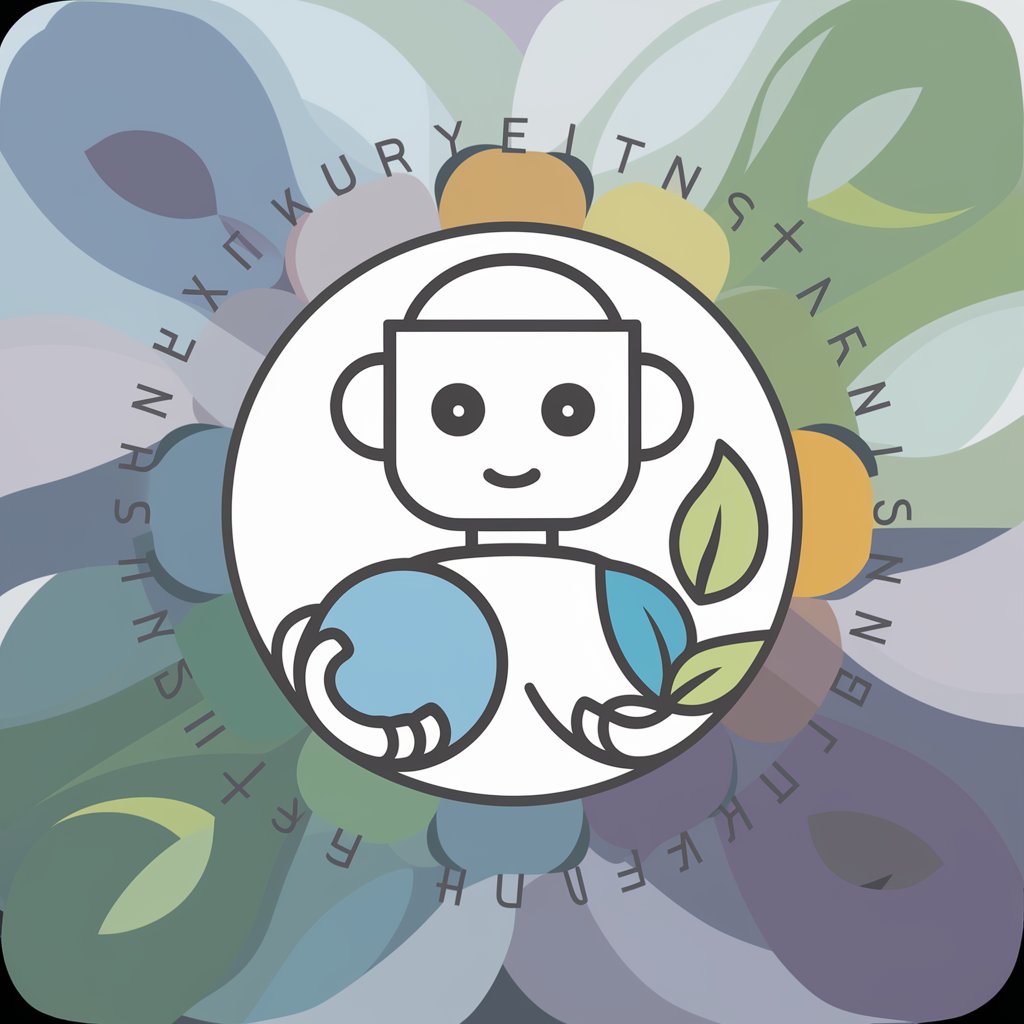Palestine - Palestine Insights and Facts

Welcome! Let's explore the rich history and culture of Palestine together.
Exploring Palestine through AI
Explain the historical significance of the olive tree in Palestinian culture.
Describe the architectural features of the Dome of the Rock.
What are the traditional patterns used in Palestinian embroidery?
How has the geopolitical context shaped modern Palestine?
Get Embed Code
Introduction to Palestine GPT
The Palestine GPT is a specialized version of the ChatGPT, tailored to provide users with detailed, insightful information about Palestine. This includes its rich history, vibrant culture, and the complex geopolitical context that defines it. Designed to be both educational and engaging, the GPT aims to offer a comprehensive understanding of Palestine through a respectful and informative lens. It can generate content ranging from historical timelines, cultural practices, key figures in Palestinian history, to current geopolitical analyses. For example, a user interested in the architectural heritage of Palestine might receive detailed descriptions of historical sites like the Dome of the Rock or the ancient city of Jericho, including their historical significance, architectural features, and their role in Palestinian culture. Powered by ChatGPT-4o。

Main Functions of Palestine GPT
Educational Insights
Example
Providing a detailed history of the Palestinian struggle for independence, including key events, figures, and international responses.
Scenario
A student preparing a research paper on Middle Eastern politics uses the GPT to gather comprehensive background information on the Palestine-Israel conflict.
Cultural Exploration
Example
Exploring Palestinian cuisine, music, literature, and traditional crafts, highlighting their significance and evolution.
Scenario
A cultural enthusiast explores Palestinian art forms through the GPT, learning about traditional embroidery techniques, folk music, and contemporary Palestinian literature.
Geopolitical Analysis
Example
Analyzing current events and their implications for Palestine and the broader Middle East region, including peace talks, territorial disputes, and humanitarian issues.
Scenario
A policy analyst uses the GPT to understand the latest developments in Palestinian territories and their potential impact on regional stability.
Ideal Users of Palestine Services
Students and Educators
Individuals in academic settings looking to deepen their understanding of Middle Eastern history, culture, and politics. Palestine GPT serves as a valuable resource for preparing lectures, research papers, or educational materials.
Journalists and Researchers
Professionals seeking in-depth information on the historical context, current events, and nuanced perspectives within the Palestinian narrative. The GPT can assist in providing balanced, well-researched content for articles, reports, and documentaries.
Cultural Enthusiasts
People interested in exploring the rich cultural heritage of Palestine, from its cuisine and crafts to its literature and music. The GPT offers a gateway to understanding and appreciating the diversity and depth of Palestinian culture.

How to Use Palestine
Start Your Journey
Visit yeschat.ai to begin your exploration of Palestine without the need for signing up or subscribing to ChatGPT Plus.
Identify Your Interest
Determine your specific interest area or question about Palestine, whether it's related to its history, culture, or geopolitical context.
Engage with Palestine
Use the chat interface to ask your questions. Be as specific as possible to receive detailed and comprehensive answers.
Explore Further
Based on the information provided, you may explore related topics or ask follow-up questions to gain deeper insights into Palestine.
Utilize Tips for Optimal Experience
For complex queries, breaking them down into smaller, more specific questions can help in getting more precise answers.
Try other advanced and practical GPTs
Lye
Unlocking Chemistry's Potential Safely

しんご
Crafting Characters, Enriching Stories

NeuroPup
Empowering Dog Owners with AI-Driven Advice

Disabilities
Empowering Lives with AI-Powered Support

Alabama
Explore Alabama through AI

JP ↔ EN
AI-powered, nuanced language translations

Clocks
Unlock Time's Secrets with AI

PósFisioterapiaETerapiaOcupacional
Revolutionizing Physiotherapy and Occupational Therapy Research

Payment
Empowering secure, AI-driven transactions

Accessible
Empowering Inclusivity with AI

Minnesota
Unlock the Heart of Minnesota with AI

Wordwise
Elevate Your Words with AI Insight

Detailed Q&A About Palestine
What is the historical significance of Jerusalem in Palestinian history?
Jerusalem holds a central place in Palestinian history as a city of religious, cultural, and historical significance. It has been a focal point of the Palestinian identity, embodying centuries of diverse civilizations, from Canaanite settlements to Islamic caliphates. The city's significance is deeply rooted in its religious landmarks, such as the Al-Aqsa Mosque, which is the third holiest site in Islam, and its historical role as a center of political, economic, and spiritual life in Palestine.
How does Palestinian cuisine reflect its culture?
Palestinian cuisine is a rich tapestry that reflects the culture's agrarian society, historical migrations, and the cross-cultural interactions through trade routes. Staples such as olives, wheat, and lentils are central, while dishes like maqluba, mansaf, and falafel highlight the blend of flavors and culinary techniques passed down through generations. This cuisine not only offers a taste of Palestinian hospitality but also tells the story of resilience and adaptation to the changing landscapes of the region.
What are the main challenges facing Palestine today?
Palestine faces a myriad of challenges today, including political instability, territorial disputes, and economic hardships. The Israeli-Palestinian conflict continues to affect daily life through military occupation, settlement expansion, and restrictions on movement. Additionally, internal political divisions between the West Bank and Gaza Strip contribute to governance issues. Economic challenges are exacerbated by limited access to resources, restrictions on trade, and high unemployment rates, particularly in the Gaza Strip.
Can you explain the significance of the olive tree in Palestinian culture?
The olive tree symbolizes peace, resilience, and connection to the land in Palestinian culture. It's an integral part of the landscape and economy, providing olives, oil, and wood. The olive harvest season is a time of communal activity, reflecting the agricultural traditions and social bonds within Palestinian society. Moreover, the olive tree stands as a poignant symbol of Palestinians' attachment to their land amidst the ongoing conflict, representing hope and steadfastness.
How has Palestinian literature contributed to the global literary landscape?
Palestinian literature, with its rich narratives of displacement, resistance, and identity, has made significant contributions to the global literary landscape. Authors like Mahmoud Darwish, Ghassan Kanafani, and Edward Said have brought international attention to the Palestinian experience through poetry, fiction, and critical essays. Their works explore themes of exile, memory, and the quest for national identity, offering insights into the human condition and the complexities of living under occupation. This literature not only serves as a voice for Palestinians but also as a bridge to understanding their struggles and aspirations.
